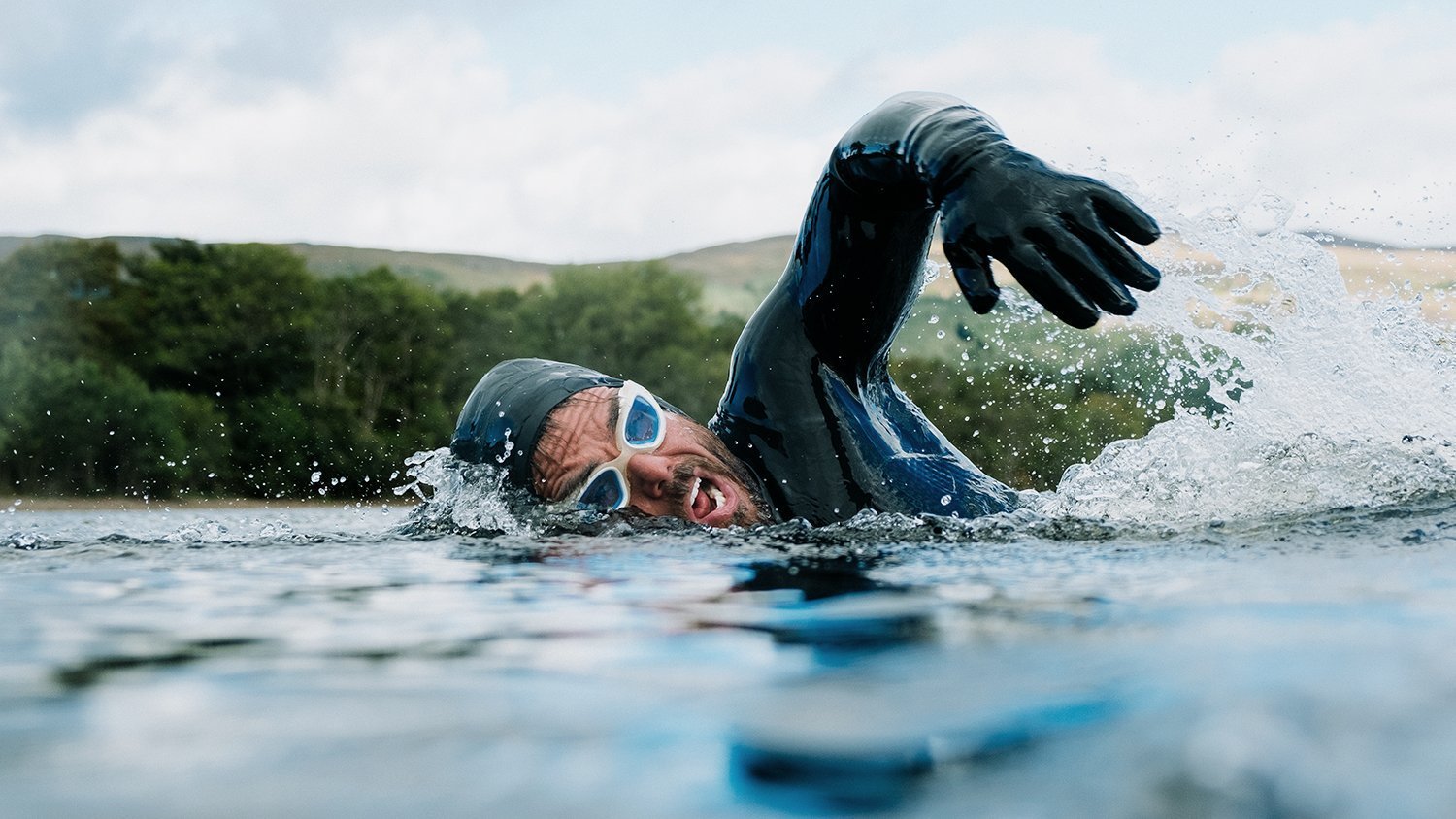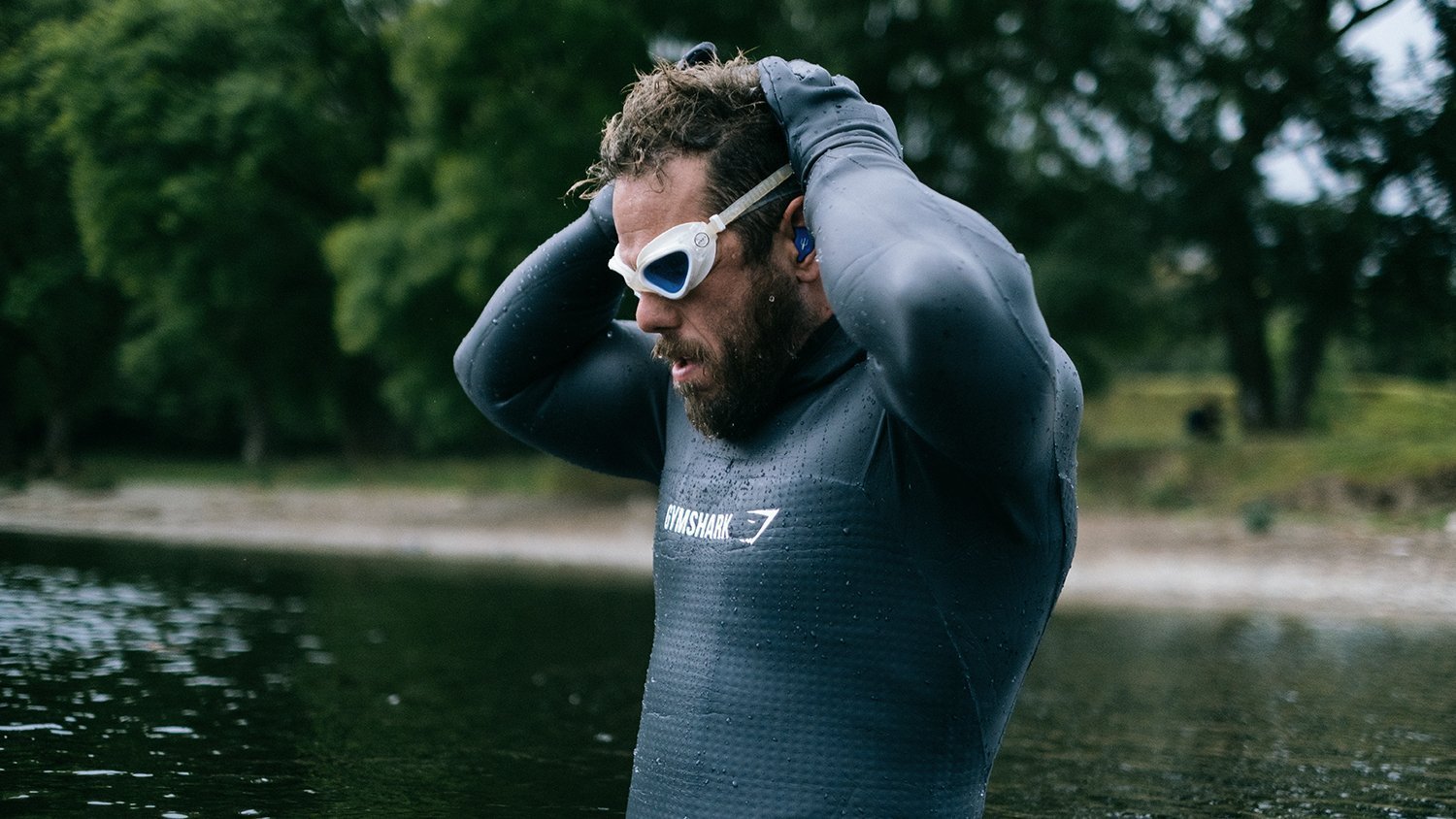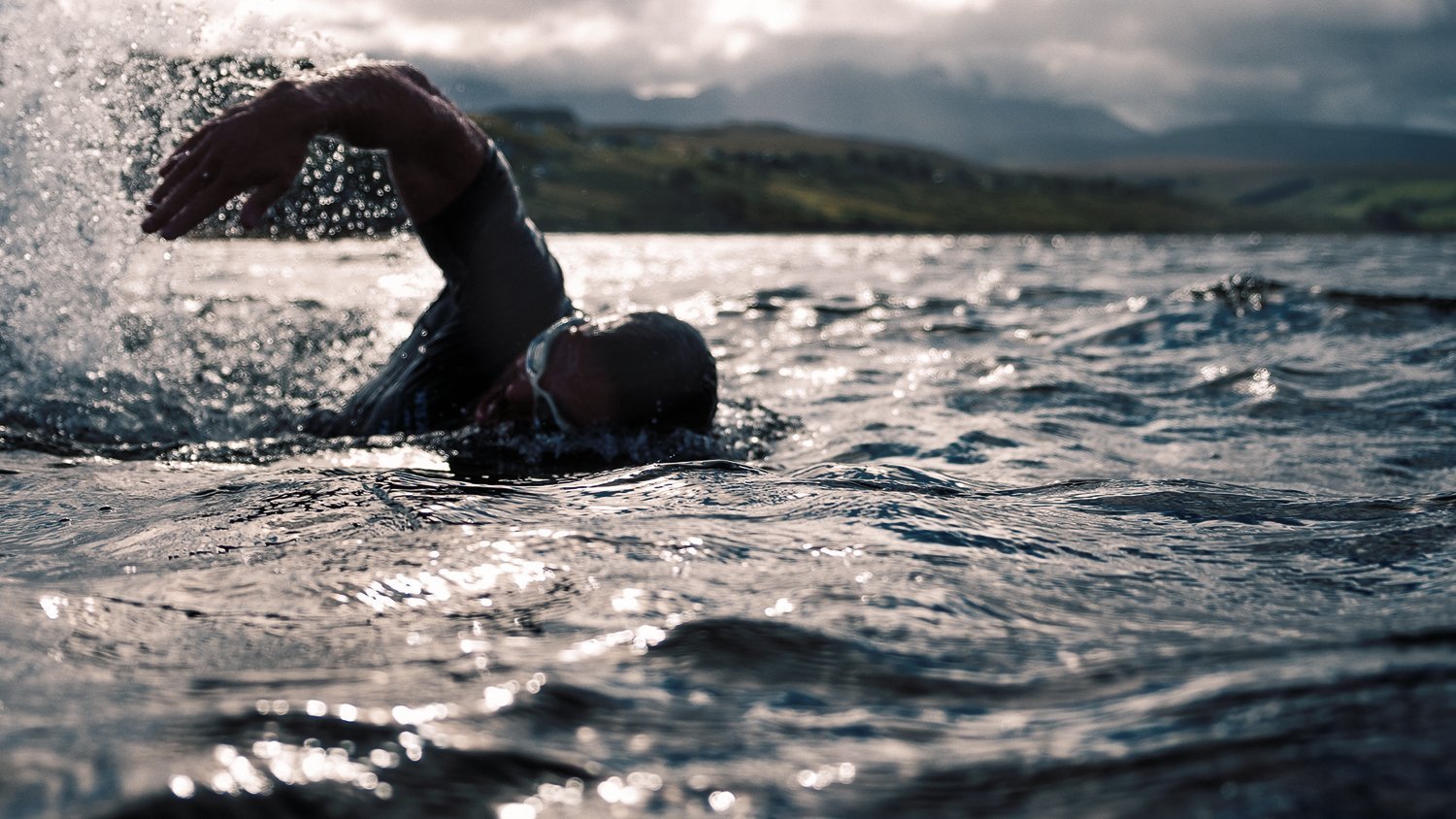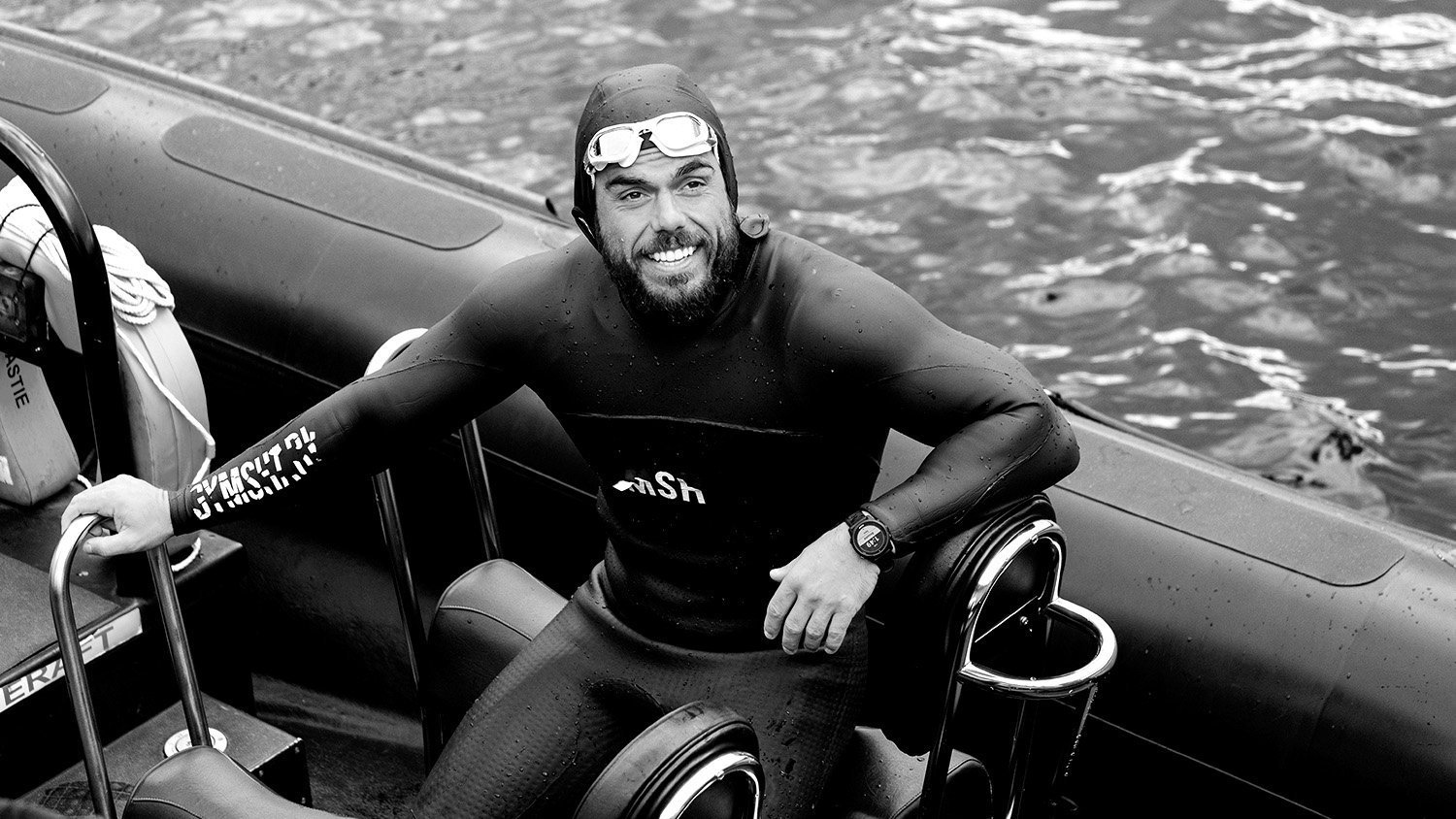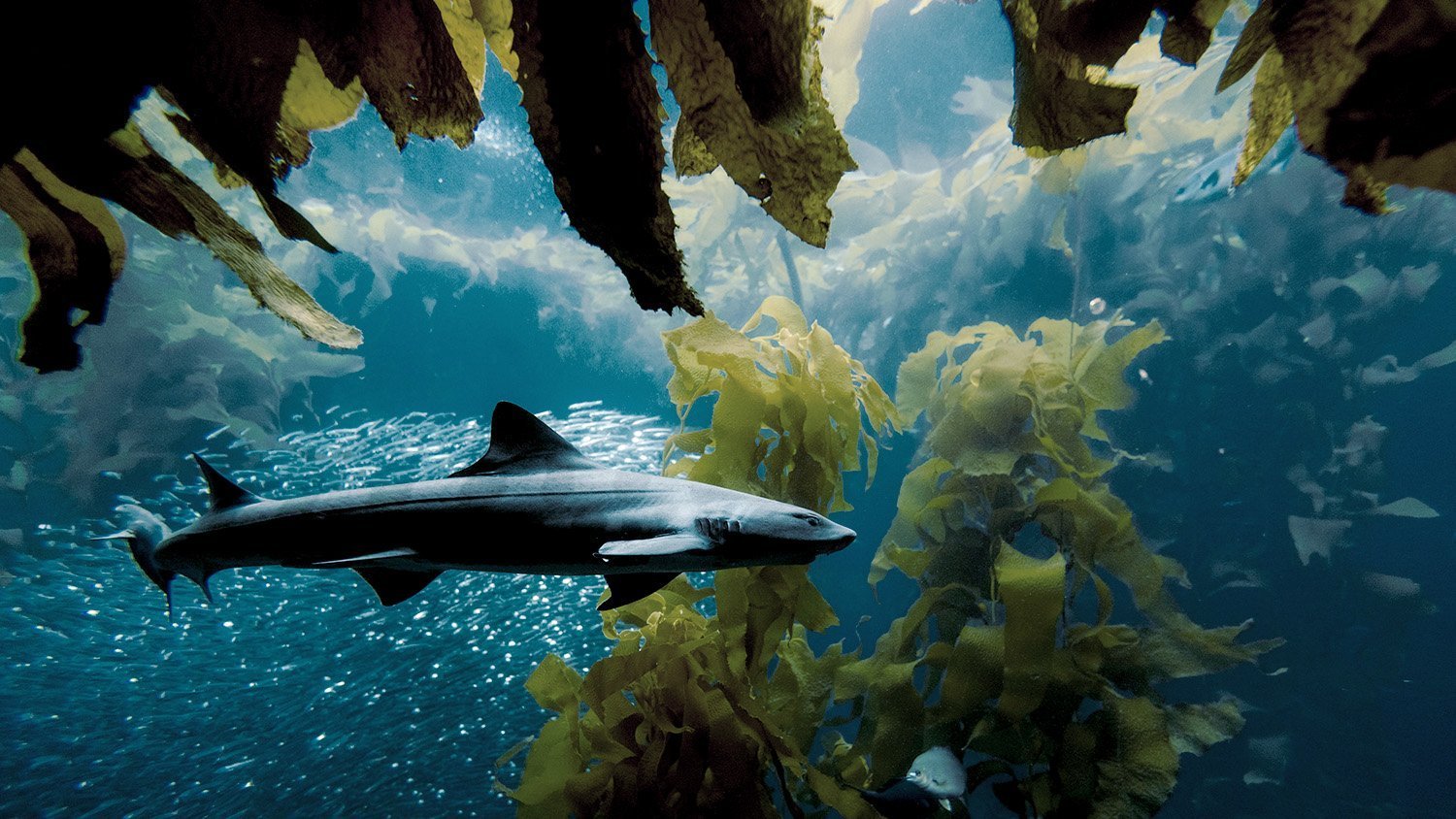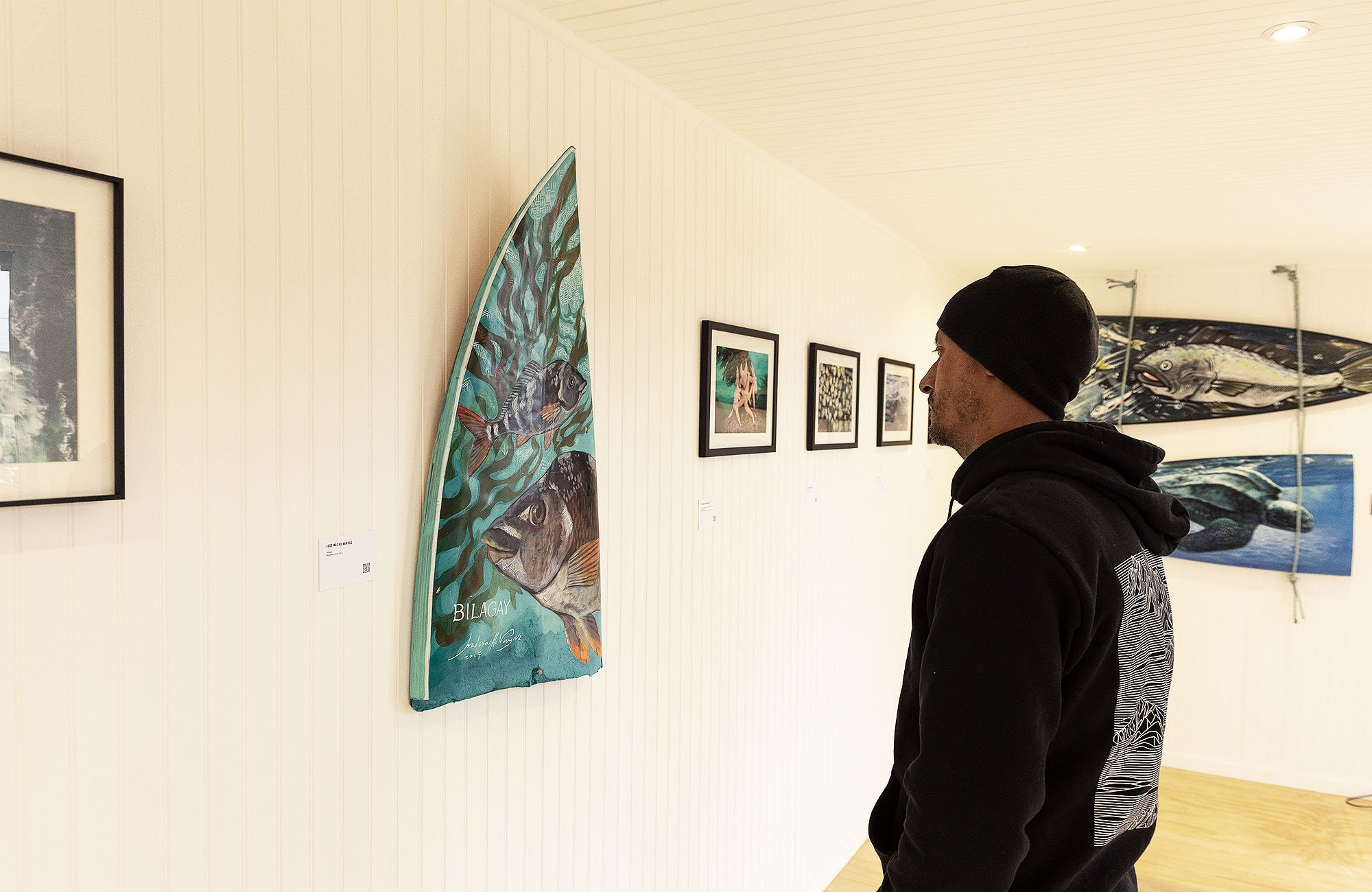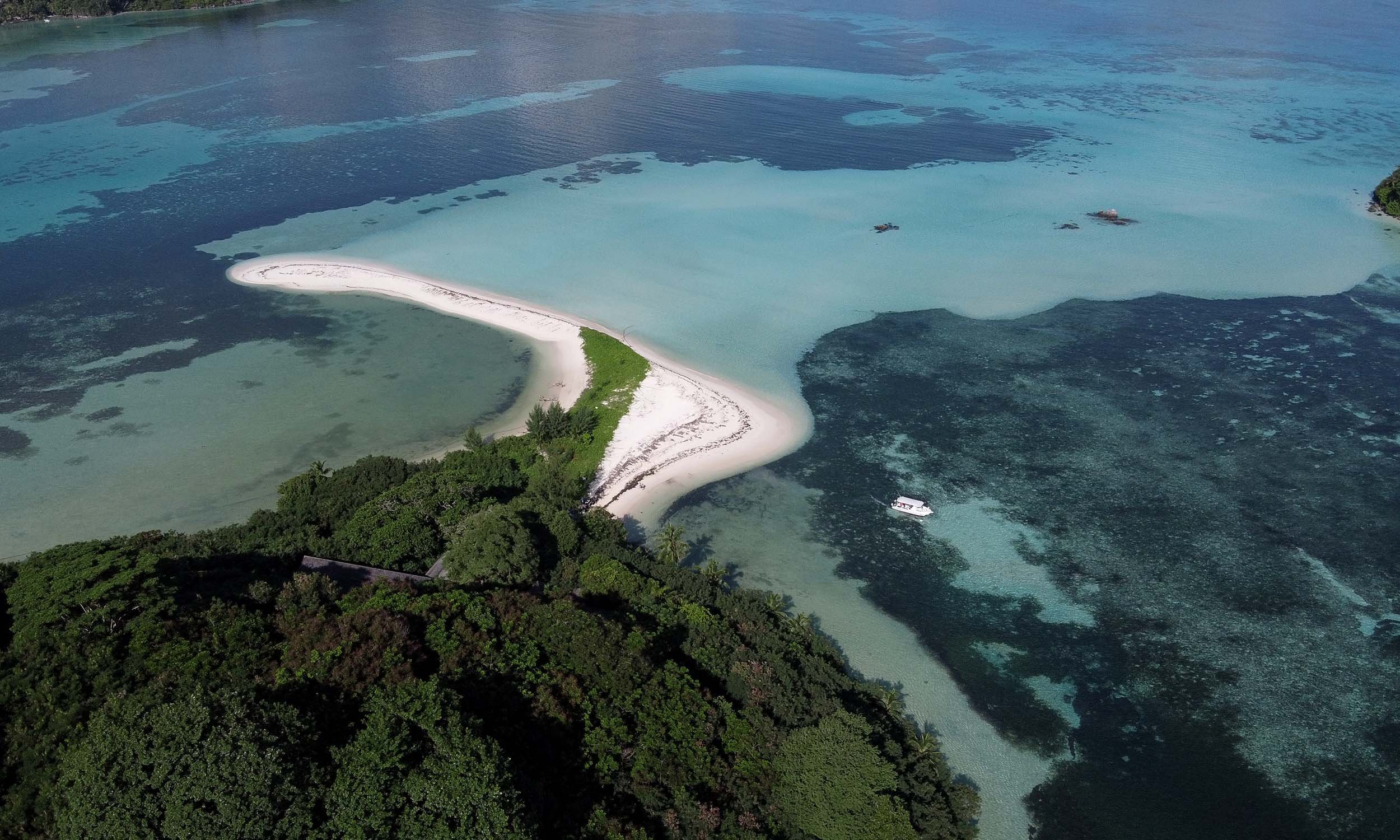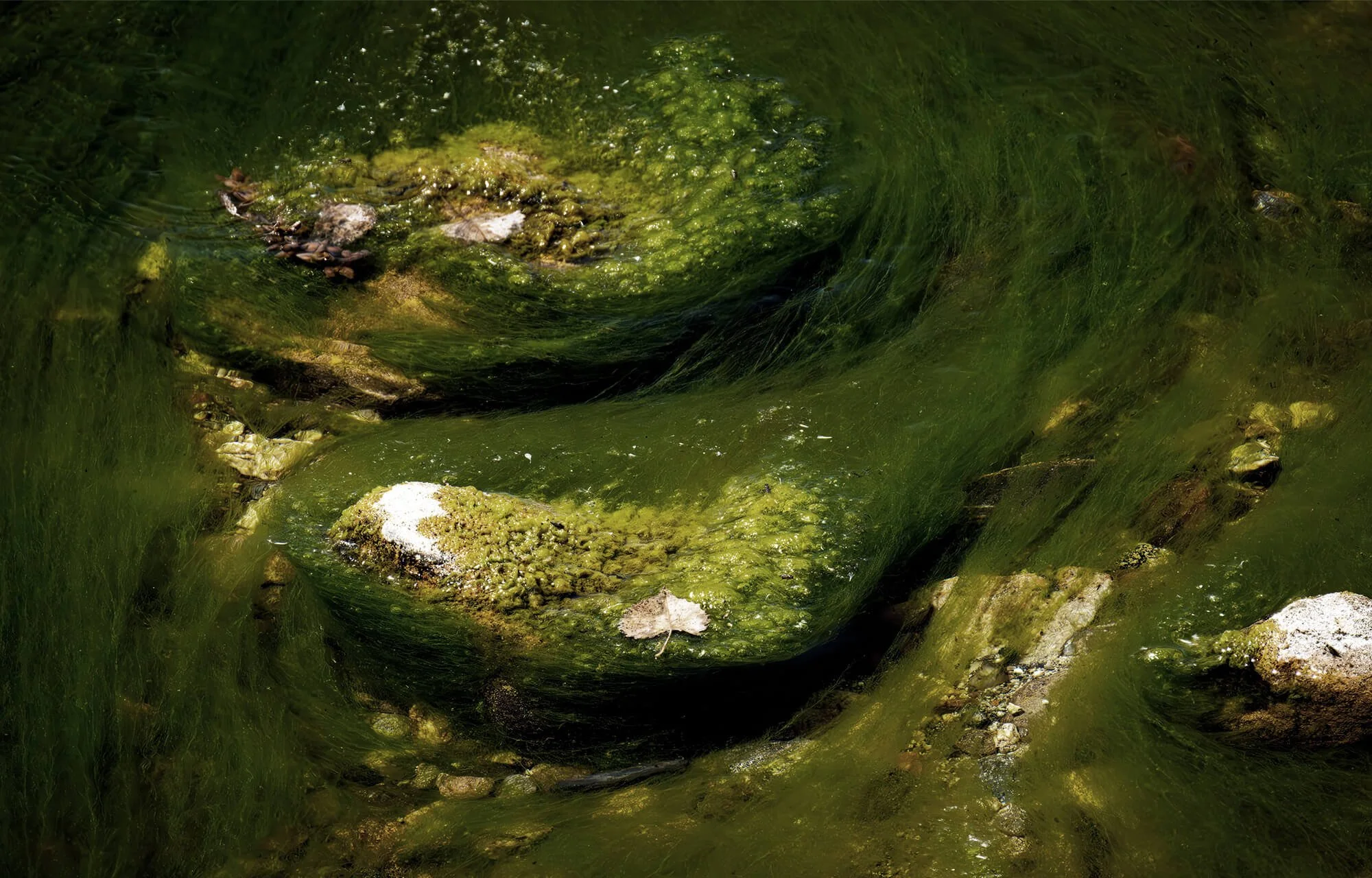Ross Edgley's non-stop swim for seaweed
Parley collaborator Ross Edgley smashed a world-record during a 53-hour non-stop Loch Ness swim to protect kelp forests in Scottish waters
Harsh rain and winds up to 20 knots and temperatures as low as 5 degrees Celsius sets the scene for long-distance swimmer and Parley collaborator Ross Edgley’s recent 52-hour and 39-minute continuous open-water swim in Loch Ness, Scotland. The ‘Ross Ness Monster’ covered almost 79km, swimming without touching land or a boat for a continuous period of more than two days and nights in what he described as the biggest physical and mental challenge of his career. Although he initially set out to break the world record for longest ever non-stop lake swim, the motivation was never for the record alone. It was all for seaweed. Ross found his motivation to swim and swim, and swim… in bringing awareness to the importance of underwater kelp forests, joining Talisker x Parley on a mission to support blue carbon research in Scotland and around the world.
“I wanted to do this Swim for the Sea and break the world record to help raise awareness of Talisker and Parley’s joint mission in the fight against climate change. The longer I’ve been working with Talisker and Parley the more I’ve learnt about sea kelp and how essential the preservation of these magical sea kelp forests are. It was the biggest challenge of my career physically and mentally, but the important purpose behind it really inspired me to keep going and I’m so proud to have broken the world record, I hope in turn I’ve inspired people to make a difference.”
Ross Edgely
Expanding the goals of our joint Rewild Our Seas initiative, Talisker and Parley are now are also working to help protect an overlooked world beneath the ocean surface through supporting scientific research that aims to better understand kelp forests’ role as a global carbon sink, and the value they play in the biodiversity of Scotland's fragile and beautiful marine ecosystems. The findings by research partners Blue Marine Foundation and Heriot-Watt University will help to showcase how essential these underwater forests in Scotland and around the world are, to encourage greater levels of protection.
As part of the scientific research, experts at Plymouth Marine Laboratory are working alongside Heriot-Watt University to map the present and future distribution of kelp forests in Scotland. This research, supported by Talisker and Parley, is located currently in the Orkney Islands off the north coast of Scotland, a remote, biodiversity-rich and abundant area of underwater kelp forests. Defining and quantifying this carbon sink will create evidence that could help support future preservation of sea kelp forests in Scotland and around the world. This is a new project in addition to Talisker and Parley’s joint mission to support the preservation of 100 million square meters of marine ecosystems around the world by 2023.
“We are delighted to join Talisker, Parley, Blue Marine Foundation and Heriot-Watt University in pursuing a better understanding of the role of kelp in the ocean carbon cycle. The ocean has already absorbed over a quarter of man’s global greenhouse gas emissions.
This project will seek to understand how the protection of ocean habitats like kelp beds and the seabed could be optimised to better support its carbon stores, and with them, the rich biodiversity they harbour.”
Dr. Ana Queiros — Lead scientist of Plymouth Marine Laboratory

